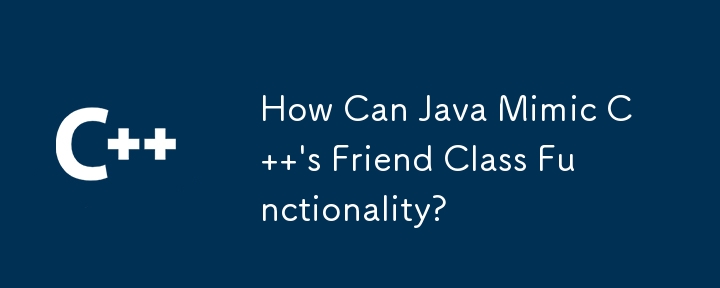

Replicating C 'friend' Concept in Java
In C , the 'friend' concept allows classes in different packages to access non-public members of other classes. Java lacks a direct equivalent, but it provides a clever workaround using nested classes.
Implementation
Consider two classes, Romeo and Juliet, from different packages. Romeo wishes to access Juliet's non-public methods without subclassing her. Here's how to achieve it using nested classes:
// Juliet's package
public class Juliet {
private void cuddle() {
System.out.println("O Romeo, Romeo, wherefore art thou Romeo?");
}
// Signature security for cuddle
public static class CuddleAllowed { private CuddleAllowed() {} }
private static final CuddleAllowed cuddleAllowed = new CuddleAllowed();
public void cuddle(Juliet.CuddleAllowed cuddle) {
cuddle(); // Juliet can cuddle herself
if (cuddle == cuddleAllowed) {
System.out.println("Only Romeo can cuddle Juliet.");
}
}
}
// Romeo's package
public class Romeo {
public static void cuddleJuliet() {
Juliet juliet = new Juliet();
juliet.cuddle(Juliet.cuddleAllowed); // Romeo can cuddle Juliet
}
}In this example:
The above is the detailed content of How Can Java Mimic C 's Friend Class Functionality?. For more information, please follow other related articles on the PHP Chinese website!
 What are the application scenarios of PHP singleton mode?
What are the application scenarios of PHP singleton mode?
 The difference between mac air and pro
The difference between mac air and pro
 What is an .Xauthority file?
What is an .Xauthority file?
 python number to string
python number to string
 How to share a printer between two computers
How to share a printer between two computers
 How to solve the computer prompt of insufficient memory
How to solve the computer prompt of insufficient memory
 How to fix winntbbu.dll missing
How to fix winntbbu.dll missing
 How to set up virtual memory
How to set up virtual memory




